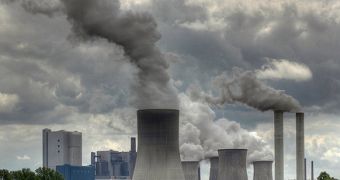Quite a while ago, Greenpeace accused Enel, Italy's largest power company, that it is solely responsible for considerably increasing global pollution levels.
Moreover, the environmentally friendly organization argued that coal emissions released into the natural world by this company end up killing more than 350 people in Italy on a yearly basis, primarily as a result of related health issues.
Apparently, Greenpeace was also very blunt when presenting its case, and the general tone it employed was considered by some to be a rather aggressive one.
Their official reports informed on how – in 2011 alone – Enel was Italy's leading CO2 polluter, and that the company was to blame for releasing nearly 37 million tones of said harmful chemical compound into the atmosphere.
It is also noteworthy that Greenpeace's estimates on the amounts of pollution caused by Enel's power plants were based on official information it got from the European Environment Agency, which by definition is supposed to be unbiased when looking into such matters.
Naturally, Enel was not exactly thrilled to read about these accusations on Greenpeace's official website, and filed a lawsuit intended to force the organization to hide their reports on this topic from the general public.
Thus, said power company asked that Greenpeace shuts down its Italian website altogether, regardless of the fact that representatives of this organization argued that Enel should first take the time and check to see whether their reports were accurate or not.
However, the court decided that Greenpeace had done nothing wrong, and that every bit of information posted on their website was as accurate as possible. Therefore, they cannot be legally compelled to give up on their claims.
Having now won the lawsuit, Greenpeace argues that, rather than deciding to go against it and its environmentally friendly ways, Enel would have been better off owning up to its responsibilities and deciding to invest in renewable energy sources.

 14 DAY TRIAL //
14 DAY TRIAL //